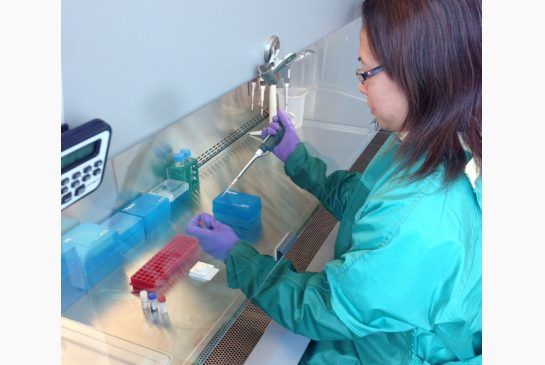CANADIAN PRESS Oct. 18, 2014
OTTAWA—The federal government says Canada will start shipping its experimental Ebola vaccine to the World Health Organization on Monday.

A lab worker at the JC Wilt Infectious Diseases Research centre at Canada's National Microbiology Laboratory in Winnipeg, Manitoba. An experimental Ebola vaccine developed in Canada will be shipped to the World Health Organization in Geneva starting Monday.
The government says in a release the Public Health Agency of Canada is supplying the vaccine to the UN body in Geneva in its role as the international co-ordinating body for the Ebola outbreak in West Africa. It says Canada will ship 800 vials of its experimental vaccine in three separate shipments, as a precautionary measure.
The WHO will consult with its partners, including the health authorities from the affected countries, to determine how best to distribute and use the vaccine. For instance, it must take into account concerns about using an experimental vaccine in people.
Recent Comments